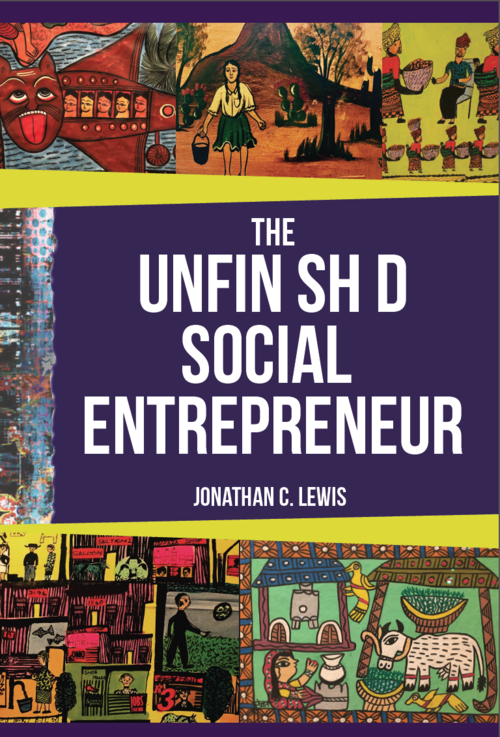Amidst the mayhem that has been this year, another book came onto the scene in our sector. Jonathan Lewis got lots of endorsements from folks whose names you’ll recognize, so I feel less guilty I didn’t make time for it on how-matters.org until now. (How did it get to be November anyway?!)
 Today was one of those days in D.C. when I was reminded why books like The Unfinished Social Entrepreneur and Smart Risks are needed. I’m a huge espouser of people getting uncomfortable – more often, much more often. When I look for my compassion point for the leaders of multi- or bilateral institutions or foundations that fill up panels in capital cities around the world, I have to remember that they are most often surrounded by voices echoing their own. As I’ve written here before, much can be swept under the shadow of “doing good.” There, critiques or valid concerns automatically become criticisms, and too often are met with reactions of defensiveness, justification, and anger.
Today was one of those days in D.C. when I was reminded why books like The Unfinished Social Entrepreneur and Smart Risks are needed. I’m a huge espouser of people getting uncomfortable – more often, much more often. When I look for my compassion point for the leaders of multi- or bilateral institutions or foundations that fill up panels in capital cities around the world, I have to remember that they are most often surrounded by voices echoing their own. As I’ve written here before, much can be swept under the shadow of “doing good.” There, critiques or valid concerns automatically become criticisms, and too often are met with reactions of defensiveness, justification, and anger.
So how do people start to view feedback, competing interests, and even pointed, direct questions as not something to reject or rebuff, but as opportunities to learn more and grow?
One way is to read Jonathan Lewis’ book. Jonathan is himself a cult of personality. Don’t let his professed love of hot dogs fool you. He is one part powerhouse and one part apostle when it comes to social entrepreneurship and impact investing. His own learning about how justice fits into all of this is ongoing. It has to be – for all of us. Because as the world changes, there are new folks taking seats at the table.
The Unfinished Social Entrepreneur is a guidebook and a treatise on how powerful white men can grapple openly with their imperfections, reverse the unintended consequences of their work, and step out into the light as do-gooders, holding themselves to account first. If more leaders in this sector – irrespective of gender, race, class or creed – were doing that, rather than serving the perpetuation of institutional systems that they themselves question, it would begin to look much different.
If there’s one thing I’m learning in this new era of post-truth communications, it’s that when someone’s ire is up, they are being made uncomfortable. They may not be able to respond in the moment, but what we say can stick with them. They will then have the choice whether to dismiss it outright or bury it deep down inside, where it can “never” hurt or challenge them…OR, they can think again about what it meant to hear another perspective and what new information is there to be considered. As Monica Curca describes feedback,
“I see it as gift giving. I don’t like all the gifts I get. I don’t have to use them all. But I also don’t ask the person how dare they give it to me.”
We do-gooders were never meant to agree on how to end poverty. We were also never meant to avoid conflict.
So let’s all sit down together, return “the political” to its rightful place in public conversations about global development, and learn to how to respectfully disagree.
The only condition? You must be willing to be changed.
***
Related Posts
Wrestling with my white fragility
Confessions of a recovering neocolonialist (reprise)
White supremacy, black liberation, and global development: The conversations we’re not having
Don’t you talk about my…that way…
Why I wrote about “smart risks” in philanthropy and why I would frame it differently now
